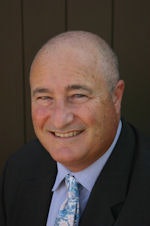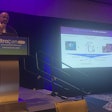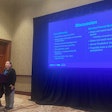
It was early in the afternoon on a Thursday. The leader of my client group and the two other members of its management committee sat with me around a conference room table as we began to discuss how we would expand the practice to take over the contract at the hospital.
We discussed the staffing and coverage requirements in great detail, both in regard to what the hospital had contractually mandated and what we had determined was actually the case.
 |
| Healthcare business and legal affairs expert Mark F. Weiss. |
We laid out plans to begin speaking in confidence with many of the referring physicians. What was their experience with the service? What were response times like? How easy was it to get in touch with one of the radiologists for follow-up or for additional consultation?
We also planned to speak with several of the midlevel, service line hospital administrators to learn of ways to improve the experience they were currently obtaining.
And of extreme importance, we analyzed each of the current providers: not simply their medical skills, but also their interpersonal skills; the way they interacted with patients, referring physicians, and administrators; their demeanor; and their responsiveness.
These are a few of the numerous issues we discussed over the course of the three or so hours of the meeting that day, as we began to lay out a plan to secure the contract that would take a little over a year and a half to implement completely.
So, you're wondering if we got the contract.
We already had the contract.
The hospital we were analyzing was the main facility at which my client group provided services at that time, and at which it still provides services years later.
What we were doing that afternoon was engaging in a process similar to what high-level salespeople do to prepare for an important sales presentation. Some call this process "negative preparation" -- we were discovering all of the negatives about our own performance, about our own organization, about our own way of service delivery, and about the entire situation.
As the process played out over the course of months, we used the information we developed for multiple purposes.
To the extent the gathering function involved interaction with referring physicians and administrators, we used the process itself as a tool to improve those relationships. Importantly, simply having the group's physicians participate in this process and then debriefing them led to an improvement on their part -- an application of the so-called Hawthorne Effect, a phenomenon observed by a social research experiment in the 1920s and 1930s: Individuals' performance improves simply because they know that their performance is being measured.
We used it to correct defects in our service, either real or perceived. Frankly, it doesn't make any difference whether the defects were completely perceptional, because perception is what drives opinion, and it was opinion that we were out to sway.
And, finally, we used it as fuel to drive incredible improvement and to create what I refer to as an "experience monopoly," a monopoly in terms of the experience that the group provides to its customers: hospitals, referring physicians, and patients. An experience monopoly is a complete "bag of tricks," if you will. It's a level and intensity of service and interaction that no one else can duplicate; in fact, would-be competitors might not even understand what is being done.
You might also call this process of negative preparation "shadowing the competition," because in a very real way this is a general description of what your sophisticated competitors are doing on a daily basis ... perhaps targeting your group's opportunities as you read this.
Yes, the process takes time, but it's an absolutely necessary element of positioning your group not just to protect what you have, but also to expand your practice, your business, and your profits in the future.
Yes, the process costs money, but spending a few hundred thousand dollars over the course of a year or year and a half to protect a $5 million to $50 million or more practice is a tremendous return on investment -- and a tremendous return on your future.
Or look at it this way: It's likely that someone else, some competitor, is spending its time and money right now on taking away your future. Spend some of yours on your own.
Mark F. Weiss is an attorney who specializes in the business and legal issues affecting radiology and other physician groups. He holds an appointment as clinical assistant professor of anesthesiology at University of Southern California's Keck School of Medicine and practices with the Advisory Law Group, a firm with offices in Los Angeles and Santa Barbara, CA. He can be reached by email at [email protected] and by phone at 800-488-8014.
Copyright © 2012 Mark F. Weiss



















